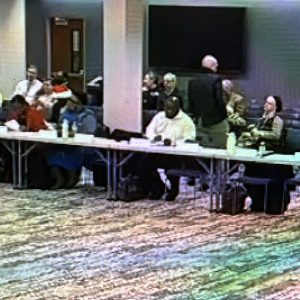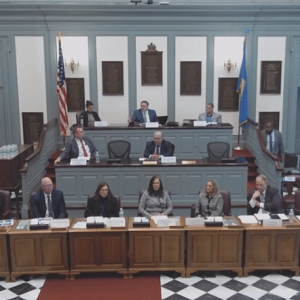
The bill would give Todmorden Foundation, an affordable housing group, exemption from school property taxes. (Photo from ForRent.com)
The Delaware legislature pushed through a bill that would exempt an affordable housing organization from paying certain taxes.
Senate Bill 78, sponsored by Senate Majority Whip Elizabeth “Tizzy” Lockman, D-Wilmington, exempts people from paying school property taxes on real estate owned by Todmorden Foundation and used for the purposes of affordable housing.
That organization is a non-profit that provides affordable rental housing and improves the quality of life in Wilmington.
The bill’s fiscal note shows $178,267.32 a year lost for three school districts in Delaware.
That’s a result of $159,085.95 revenue lost for the Red Clay Consolidated School District, $6,765.50 for the Christina School District and $12,415.87 for the New Castle County Vo-Tech School District.
Legislators asked how that revenue would be made up, which wasn’t answered, but districts said they are “neutral” on the bill.
Rich Przywara, president and chief executive officer of the Todmorden Foundation, said in Thursday’s House Education Committee that the school districts “very graciously said they won’t oppose it,” which drew a few crackles from the legislators.
“They understand that affordable housing is very important to their ability to have the students attend school regularly, and that housing stability is very important for them,” Przywara said.
He said the foundation has a program with the districts where it helps their own staff find housing.
“We have one or two units a month that come online, and we’re sending those advertisements to their HR departments so that they can get their own employees to be in affordable housing, because this is such a critical problem,” he said.
The organization’s and our housing focuses on people in the 80% or below of AMI (area median income).
Przywara said the districts did not directly share their plans to make up lost revenue with him, but he said they understand that this is relatively modest, and they think this will not present a problem because of the growth in Delaware and the number of market rate housing that is being built.
“I don’t think we should be picking and choosing either or,” said Rep. Sherae’a Moore, D-Middletown. “I believe there is a way to get both, but the amount of revenue loss… this is a huge revenue loss, but I do understand the cost.”
Legislators asked how this would affect people downstate, to which Przywara said it wouldn’t, since the foundation only operates in Wilmington.
Rep. Eric Morrison, D-Glasgow, wanted to know what percentage of the districts’ budget would be lost.
Mark Holodick, Delaware Secretary of Education, said off the top of his head he knows Red Clay’s annual budget is north of $100 million.
Rep. Rich Collins, R-Millsboro, asked if there’s any other groups like the Todmorden Foundation.
Przywara said there’s many who are also exempt from this tax, including the Ministry of Caring, Salvation Army, West End Neighborhood House and more.
His foundation has rebuilt over 270 units and has 30 units under construction in Wilmington’s East Side.
A housing needs assessment from the Delaware State Housing Authority in late 2023 showed the state needs more affordable housing including multi-units, duplexes and triplex units.
“The National Low Income Housing Coalition just released that Delaware has a shortage of 21,197 rental units that are affordable and available for extremely low income renters,” said Rep. Kendra Johnson’s D-Bear.
The education committee released the bill, which will now make its way to the House.
If it passes the House, SB 78 will land on Gov. John Carney’s desk for signature to become a law.
RELATED STORIES:

Raised in Doylestown, Pennsylvania, Jarek earned a B.A. in journalism and a B.A. in political science from Temple University in 2021. After running CNN’s Michael Smerconish’s YouTube channel, Jarek became a reporter for the Bucks County Herald before joining Delaware LIVE News.
Jarek can be reached by email at jarek@delawarelive.com or by phone at (215) 450-9982. Follow him on Twitter @jarekrutz and on LinkedIn.
Share this Post












